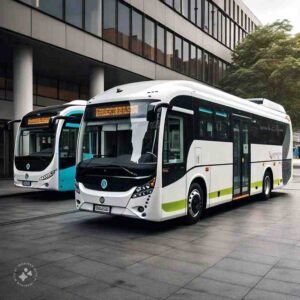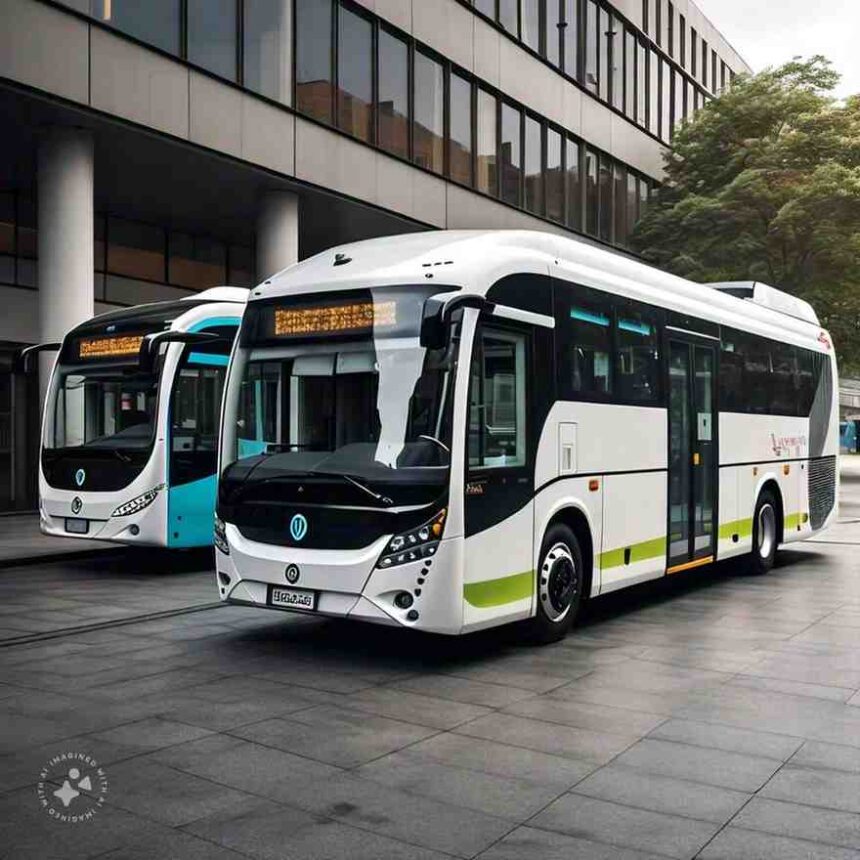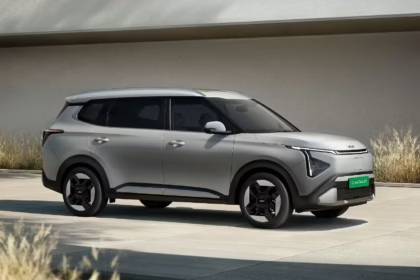Transportation is among the economic sectors that are under great change globally as the globe looks for a replacement for conventional fuel sources. Of all the technologies that are being developed and currently in use, two have significant potential to tackle the problems of emissions and provide clean transport solutions, the electric bus and the hydrogen powered buses.
A recent study from Italy has shifted focus to this debate after it presented conclusive research that buses are 2.4 times more energy efficient than hydrogen buses. As cities and countries look to the future of transportation and consider factors such as energy consumption, cost of running, and negative effects on the environment, this comparison is important.
The details of the study will be discussed in this article, as well as differences and comparisons between hydrogen vs electric buses, as well as the pros and cons of each technology. Also, there will be information on leaders in both sectors, and answers to some FAQs are included.
What are Battery Electric Buses and Hydrogen Fuel Cell Buses?
Battery Electric Buses (BEBs) consist of energy storage in a large battery that directly powers the motor and, through it, the bus. These batteries are normally recharged from charging stations or through overhead electrical wires known as pantographs, which are mounted at bus stations.
They have been embraced in the recent past because of their zero-emission capacity and lower operating costs. On the other hand, Hydrogen Fuel Cell Buses (FCEBs) use electrical energy that is produced from the chemical reactions between hydrogen and oxygen in the cell, known as a fuel cell. The hydrogen powered buses is put in a pressure storage tank whereby the only product formed during the entire process is water.
Lithium-ion technology and flow batteries are equally developed for the purpose of lessening fossil fuel dependency and decreasing greenhouse gas emissions, though both techs function on completely distinct paradigms with their own benefits and drawbacks.

Electric Bus Advantages
- Energy Efficiency: An bus has to be 2.4 times more effective in energetic conditions than a hydrogen bus, according to an Italian study.
- Low Operating Cost: Another reason that makes BEBs more economical than hydrogen buses is the fact that the former incurred lower running costs. For instance, the operating cost per kilometer of BEBs is estimated to be between €0.53 and €0.58, whereas hydrogen buses fall to between €1.23 and €1.36.
- Zero Tailpipe Emissions: Compared to conventional businesses, BEBs are environmentally friendly since they do not emit direct emissions.
- Quiet Operation: Electric buses, for instance, provide addicts free from noise vibrations, thus improving the quality of rides to the passengers.
Electric Bus Disadvantages
- Long Charging Time: It takes time to charge an bus, and this depends on the battery capacity and the charging technology to be used.
- High Initial Cost: In most cases, the initial cost of the electric bus is somewhat higher because of the expense of the top-notch batteries.
- Limited Range: The range of this bus may fall between 200 and 300 kilometers, which makes it unsuitable for long-distance travel that may require frequent recharging.
Hydrogen Bus Advantages
- Long Range: Hydrogen buses also travel for a longer distance because some types can cover 350 kilometers in a single refuel.
- Fast Refueling: This is unlike electric buses, which take hours to charge, and hydrogen buses can be refueled in just minutes.
- Zero Tailpipe Emissions: As with electric buses, the hydrogen buses emit no pollutants; the only exhaust product they release is water vapor.
Hydrogen Bus Disadvantages
- Higher Operating Costs: Hydrogen fuel cell bus is expensive to generate and transport in comparison to electricity; hence, the operating expense of a hydrogen bus is high.
- Lack of Hydrogen Infrastructure: Hydrogen refueling stations, especially railway refueling stations, are few, and this becomes a major barrier to the expansion of hydrogen buses.
- Maintenance Challenges: Hydrogen fuel cell technology is not yet mature, and servicing these buses can be utterly expensive and challenging.
Key Findings of the Italian Study
The Italian investigation was cross-sectional and investigated hydrogen bus vs electric bus operating in South Tyrol, Italy, from January 2021 to April 2022; twenty-one buses were surveyed. The study revealed several important insights:
- Energy Efficiency: In terms of energy intensity, the results were established at 137 kWh/100 km to 153.8 kWh/100 km for electric buses and 310.24 kWh/100 km to 335.75 kWh/100 km for hydrogen buses. That makes buses much more effective.
- Running Costs: The cost incurred while operating electric buses per kilometer was between 0.53 еur. to 0.58 eur., while hydrogen buses were relatively expensive, ranging from 1.23 eurs. to 1.36 eur, per kilometer.
As a consequence of such analysis, the research discovered that replacement of the conventional buses with electric buses or even hydrogen buses amounted to considerable reductions in the emission of CO2. Electric buses, though consuming comparatively less energy, had a larger role to play in terms of emissions cut-down as they operated on reducing CO2 emissions, too.
Top 5 Electric Bus Companies Worldwide
Several companies are leading the charge in the production of electric buses, each contributing to the global shift towards cleaner transportation:
- Volvo Group (Sweden): Volvo has advanced technology in bus production and currently has bus models that enhance depleted energy use as well as customers’ comfort.
- Hyundai Motor Company (South Korea): Hyundai continues to take a competitive position in the electric vehicles market, its electric buses are plying in different countries.
- BYD (China): BYD Company is among the largest global players in the supply of electric buses, with an emphasis on long-range and energy management solutions.
- Tata Motors (India): Tata Motors has adopted the use of electric technology in their mobility systems, offering electric buses for both the intracity and intercity services in India.
- Proterra (USA): Proterra’s electric buses are highly power-optimised, which means their batteries are very efficient as well.
Top 5 Hydrogen Bus Companies Worldwide
Hydrogen bus technology is still evolving, but several companies are making strides in this area:
- Safra (France): Safra is focusing on hydrogen fuel cell buses, and it is already participating in the hydrogen mobility market in Europe.
- Solaris Bus & Coach (Poland): Solaris has been an active contributor both with electric and hydrogen buses, and it has provided many ecological solutions to transportation.
- Mercedes-Benz (Germany): Presently, Mercedes has put a lot of capital into hydrogen and is in the process of manufacturing what I consider to be efficient and durable hydrogen buses.
- Foton Motor (China): Foton’s hydrogen buses are becoming popular since they have long range and go through quick refueling.
- Rampini (Italy): The company Rampini is famous for the innovative construction of hydrogen buses dedicated to environmental friendliness.
Final Thoughts
The debate as to which is the best option – hydrogen vs electric buses – is crucial to the future of near-pollution-free transportation. Although both technologies provide numerous benefits, the evaluation of the Italian research supports electric buses, which consume more power efficiency and cost less than conventional buses.
But, here, we find that refueling time and overall range are faster in hydrogen buses, which may be beneficial for longer distances and some specific services.
In the end, there are only three options: electric buses, hydrogen buses, or both, depending on the city’s needs and the structure of the transport system. Based on the current development trends, it can be noted that both technologies will remain relevant and can act as complementing systems to satisfy the world’s need for environmentally friendly transport.
Lastly, read more details in the Newly Launched Electric Vehicles section of 2024 where we present some of the latest advanced technology and sustainable performance.
FAQs
1. How exactly does an electric bus differ from a hydrogen bus?
The main distinction goes back to their sources of energy. It are driven by batteries, while hydrogen buses produce the electricity used to power the bus using hydrogen.
2. Which bus is more energy-efficient:
Electric or hydrogen? In the latest research, the energy efficiency of an electric bus is found to be 2.4 times higher compared to that of a hydrogen bus.
3.What are the main benefits of electric bus usage?
This type of transport is environmentally friendly, cost-effective, energy-efficient, has low operations costs, and operates quietly.
4. Are there any disadvantages to hydrogen buses?
While hydrogen buses exhibit greater fuel cell efficiency and potentially lower operating costs in the long term, they are currently more expensive and offer far fewer refueling stations than electric buses.
5. Which is better for long-distance travel Electric bus or hydrogen bus?
Hydrogen buses are typically more suitable for intercity use because of their longer range and shorter refueling time.





